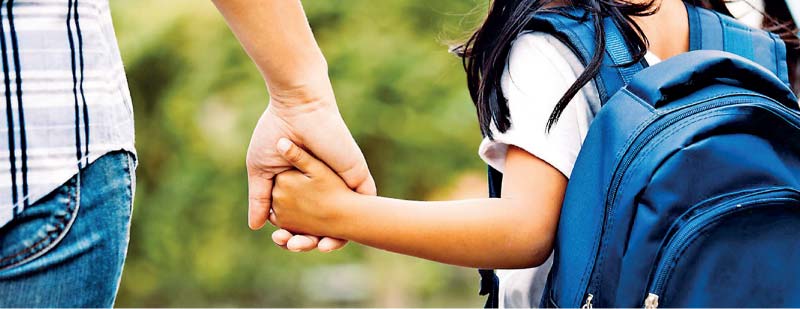Saturday Feb 21, 2026
Saturday Feb 21, 2026
Monday, 11 November 2024 01:25 - - {{hitsCtrl.values.hits}}

The constant re-victimisation that occurs through such media exposure only serves to deepen their psychological scars
By Milani Salpitikorala and Tahaan Jayewardene
We have all heard the tragic stories of child victims—whether through news reports, social media, or articles—stories that bring public attention to the horrific realities of child exploitation and violence in our island. However, what we don’t realise is the lasting harm caused by media coverage. By exposing sensitive details, it creates a multitude of complications, both legally and personally, for the victims themselves.
Many of the well-known stories have tragically highlighted the serious failings in our system’s approach to handling crimes against children. How the media exploits cases, exposing sensitive details about victims, evidence, and witnesses, is not only irresponsible but severely compromises the child’s safety. This careless reporting undermines the credibility of cases in court, prolongs legal proceedings, and increases the chances of perpetrators evading justice. This is a disturbing trend that we have seen repeated time and again, where the media manipulates vulnerable victims for profit through sensationalist reporting, with little regard to the ramifications on the child’s life.
Secondary victimisation
As we are undoubtedly aware, trauma survivors, especially children, suffer immensely under normal circumstances, which leads us to the second failing in our system; The secondary victimisation these children face from society—through the police, doctors, courts, schools, and even their own communities. This is exacerbated further by insensitive and dehumanising media coverage. When their ordeal is thrust into the public eye, every aspect of their suffering is magnified. The constant re-victimisation that occurs through such media exposure only serves to deepen their psychological scars, retraumatising them (forcing them to relive their trauma) making recovery increasingly difficult.
While society moves on and forgets, Child Protection Force steps in to pick up the pieces, tirelessly working to heal the deep wounds left behind, rebuild trust, and guide these survivors toward a path of recovery and hope – continuing with the “Damage Control.”
The media, allowed to operate without accountability and exploiting child victims for ratings while violating their privacy and dignity, is an issue our society must confront urgently. If the media seeks to contribute positively, they should prioritise creating awareness about child protection. It is imperative to establish new laws and binding policies that uphold strict media ethics when reporting crimes against children. These laws should include a ban on Law Enforcement Authorities contacting the media immediately after such cases are reported, preventing premature and invasive exposure. Moreover, mechanisms must be put in place to regulate not just print, TV, and radio, but also social media platforms to ensure responsible, sensitive reporting. It is heart-wrenching to witness how, instead of acting as allies in the fight for justice and child protection, the media have become perpetrators of further harm.
Most vulnerable members of our community
As a society, we bear an undeniable responsibility to protect our children—the most vulnerable members of our community and the very essence of our future. Yet, the prevailing mindset within our justice system, which shifts blame onto victims while shielding perpetrators, fuels a cycle of secondary victimisation and enables individuals to evade accountability. This same mindset emboldens unchecked and invasive media coverage, amplifying the suffering of those already traumatised. It is a profound failing that we must confront and reform, ensuring that the voices and rights of our children are safeguarded above all else.
This is a call for action. It is the responsibility of the Government, policymakers, and high-ranking State officials to hold the media accountable and implement sustainable regulations. It is crucial to implement new laws that enforce strict media ethics in reporting child crimes. This includes banning law enforcement from contacting the media immediately after such cases are reported and regulating all media platforms—print, TV, radio, and social media—to ensure sensitive and responsible coverage. These changes must be national policies that hold strong regardless of the changes in Government. This is not merely a suggestion; it is a necessity if we are to truly safeguard our children from further harm. The Child Protection Force is ready to support these necessary changes.
(Milani Salpitikorala is the Founder and Director, Child Protection Force and Tahaan Jayewardene works with the Child Protection Force.)